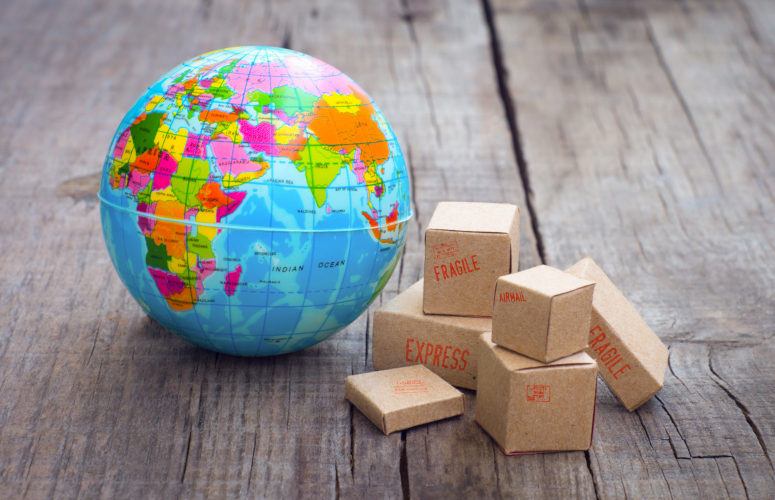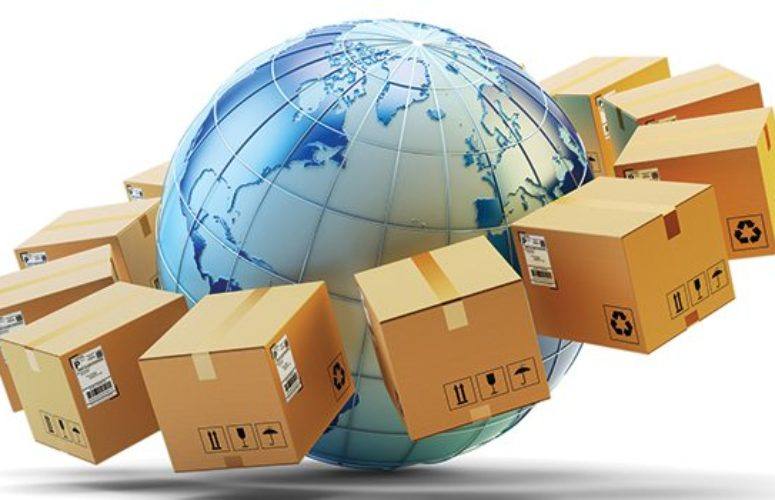
Testing the Waters of International Trade
Why you should consider selling beyond familiar US shores.
By Ron Marsico, Contributing Writer On Mar 17, 2020Does your small- to mid-size New Jersey company want to stick a toe in to test international trade waters?
It can be a daunting concept, but one offering growth potential – especially for would-be exporters who can get far more assistance than fledgling importers.
First, you’ll need to conduct extensive market research, due diligence and explore financing needs. There is a dizzying array of federal regulations to follow – with steep penalties for non-compliance. Then, depending on your product or service and the nations you want to trade with, there may be a parade of language, cultural, licensing, legal, tariff and geopolitical hurdles.
So, why even think of selling beyond familiar US shores?
“The simple answer is 95% of the world buyers are outside the US,’’ says Eddy Mayen, manager of New Jersey’s Office of Export Promotion. “[With] that statement alone, you just get big eyes from companies. … They’re just like, ‘What?’’’
International trade is a colossus. In 2018, the US imported $3.121 trillion worth of goods and services, while exporting $2.5 trillion in products, resulting in a $621 billion trade gap, according to U.S. Census Bureau statistics.
To help reduce the nation’s staggering trade deficit, Congress has mandated significant assistance programs for small- and medium-sized US companies – those with less than 500 employees – that export products and services. Importers don’t get such help.
Mayen cautions that overseas’ market analysis, a go-slow approach and learning about the trade process are essential for businesses considering the export business.
“No. 1 is: Before you get on a plane or ship anything, read about and tap into the export support community network,’’ Mayen says. “There’s an entire network of free services for companies that want to explore these opportunities. … We want to be your cheerleader and your messengers.’’
The Office of Export Promotion will help companies develop a viable export plan, locate buyers and potential markets and educate them about trade issues.
(The link to its website and free services is https://nj.gov/state/bac/bac-export-assistance.shtml)
The U.S. Commercial Service, which promotes trade under the U.S. Department of Commerce’s International Trade Administration, also provides a wide range of services for exporters.
“Our mission is to work with US companies to help them export US-made goods and services,’’ says Susan Widmer, director of the Northern New Jersey office of the US Commercial Service. “It’s all about increasing US jobs,’’ she says.
Trade counseling, market intelligence and business matchmaking are some key services offered. A step-by-step handbook titled “A Basic Guide to Exporting,” explains how to get started, conduct market research, avoid pitfalls and where to find help.
(The guide is available at https://www.export.gov/article?id=Why-Companies-should-export)
“There are plenty of people in New Jersey who are super knowledgeable and willing and able to help a business and take it to the next step,’’ Widmer says. “It’s about finding the right company at the right moment in time when senior management wants to go overseas.”
Nevena Simidjiyska, a partner at the law firm of Fox Rothschild who co-chairs its International Trade Group, recommends would-be exporters obtain legal advice to navigate the labyrinth of international trade regulations.
“It’s not that hard to comply with these rules,’’ explains Simidjiyska, who advises clients on export licensing, economic sanctions, and compliance with the US Export Administration Act. “It just takes a little bit of knowledge.”
Simidjiyska stresses that knowing the rules and having proper legal agreements with foreign distributors are critical to the bottom line: Making profits.
“You see the news – the export laws are very dynamic,’’ Simidjiyska says. “It’s becoming a much more important part of not just compliance, but risk management for US companies.”
Exporting also allows American businesses to diversify their markets, making it easier to weather a US downturn if their goods remain in demand elsewhere.
US officials continue seeking ways to bolster exporters’ opportunities.
Case in point: Earlier this month, the US Senate followed the House and passed the United States-Mexico-Canada Agreement (USMCA), a trade deal designed to enhance the interests of small- and mid-sized businesses in the global marketplace.
“The USMCA levels the playing field for small businesses and unlocks opportunities for those that have yet to tap foreign markets,” Steve Bulger, Atlantic regional administrator of the U.S. Small Business Administration (SBA), said in a statement.
Proponents tout the deal – supported by President Trump – as particularly helping small businesses engaged in digital trade by increasing intellectual property protections and cutting red tape costs.
The SBA says more than 18,600 of roughly 20,000 exporters in New Jersey qualify as small businesses, sending more than $10 billion in goods and services to Canada and Mexico in 2018.
New Jersey companies also benefit from close proximity to the Port of New York and New Jersey (the Eastern seaboard’s largest), and five Foreign Trade Zones, which are exempt from customs’ duties, scattered around the state.
Among the products most exported by New Jersey companies are medical, surgical and dental items, beauty, make-up and skin-care goods, and materials for jewelry. Canada and Mexico are the state’s two top countries for exports.
The nation’s ongoing trade war with China, meanwhile, has not impacted a significant number of clients of the state’s Office of Export Promotion, Mayen says.
“We had a couple of examples of companies that moved some of their purchasing from China to India, or to some other countries in the Middle East or Latin America,’’ Mayen says.
Spex CertiPrep, a Metuchen mid-size company that sells laboratory chemicals to test items for quality standards, has sought foreign exports as the US market has matured for its products. One chemical, for example, is used in Canada to test the potency and purity of legalized medical marijuana.
“Our exports have really accelerated in the last 8 to 10 years,’’ says Kevin McKeown, the company’s vice president of sales, citing Canada, Japan and South Korea as major foreign markets.
McKeown suggests would-be exporters narrow their geographic focus, find distributors knowledgeable of their products, and seek assistance from state and federal trade offices.
A state grant allowed Spex CertiPrep to attend a products event in Dubai in 2017, which eventually led to a 50:1 return in a contract to provide chemicals to test race horses for performance enhancing drugs, McKeown says.
Market diversification also ranks high on the list of benefits for exporters, says McKeown, adding, “You’re not putting all your eggs in the US basket.”
Services
New Jersey Office of Export Promotion offers services for businesses considering exporting or expanding their existing export operations. It provides:
- Consulting services
- Educational opportunities and resources to learn more about exporting basics
- Export plan development assistance
- Guidance in finding global opportunities
- Assistance in locating buyers and potential markets and testing local demand
- Connections with partners for joint ventures and strategic alliances
- Connections with federal resources for obtaining payment
- Guidance through foreign custom procedures
- Government-to-government advocacy
To access more business news, visit NJB News Now.
Related Articles:





